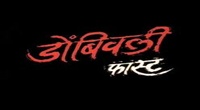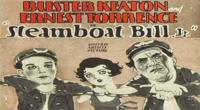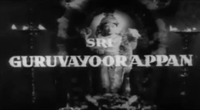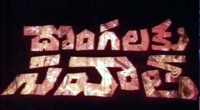
A police force is a constituted body of persons empowered by a state to enforce the law, to protect people and property, and to prevent crime and civil disorder. Their powers include the power of arrest and the legitimized use of force. The term is most commonly associated with police services of a sovereign state that are authorized to exercise the police power of that state within a defined legal or territorial area of responsibility. Police forces are often defined as being separate from military or other organizations involved in the defense of the state against foreign aggressors; however, gendarmerie are military units charged with civil policing. The police force is usually a public sector service, funded through taxes.
Law enforcement is only part of policing activity. Policing has included an array of activities in different situations, but the predominant ones are concerned with the preservation of order. In some societies, in the late 18th and early 19th centuries, these developed within the context of maintaining the class system and the protection of private property. Police forces have become ubiquitous in modern societies, though some are involved to varying degrees in corruption, police brutality and the enforcement of authoritarian rule.
Alternative names for a police force include constabulary, gendarmerie, police department, police service, crime prevention, protective services, law enforcement agency, civil guard or civic guard. Members may be referred to as police officers, troopers, sheriffs, constables, rangers, peace officers or civic/civil guards. The word police is most universal and can be seen in many non-English speaking countries.
As police are often interacting with individuals, slang terms are numerous. Many slang terms for police officers are decades or centuries old with lost etymology. One of the oldest, "cop", has largely lost its slang connotations and become a common colloquial term used both by the public and police officers to refer to their profession.
Contents
Etymology
First attested in English in the early 15th century, initially in a range of senses encompassing '(public) policy; state; public order', the word police comes from Middle French police ('public order, administration, government'), in turn from Latin politia, which is the Latinisation of the Greek ???????? (politeia), "citizenship, administration, civil polity". This is derived from ????? (polis), "city".
History
Ancient policing
Law enforcement in ancient China was carried out by "prefects" for thousands of years since it developed in both the Chu and Jin kingdoms of the Spring and Autumn period. In Jin, dozens of prefects were spread across the state, each having limited authority and employment period. They were appointed by local magistrates, who reported to higher authorities such as governors, who in turn were appointed by the emperor, and they oversaw the civil administration of their "prefecture", or jurisdiction. Under each prefect were "subprefects" who helped collectively with law enforcement in the area. Some prefects were responsible for handling investigations, much like modern police detectives. Prefects could also be women. The concept of the "prefecture system" spread to other cultures such as Korea and Japan.
In ancient Greece, publicly owned slaves were used by magistrates as police. In Athens, a group of 300 Scythian slaves (the ?????????, "rod-bearers") was used to guard public meetings to keep order and for crowd control, and also assisted with dealing with criminals, handling prisoners, and making arrests. Other duties associated with modern policing, such as investigating crimes, were left to the citizens themselves.
In the Roman empire, the army, rather than a dedicated police organization, provided security. Local watchmen were hired by cities to provide some extra security. Magistrates such as procurators fiscal and quaestors investigated crimes. There was no concept of public prosecution, so victims of crime or their families had to organize and manage the prosecution themselves.
Under the reign of Augustus, when the capital had grown to almost one million inhabitants, 14 wards were created; the wards were protected by seven squads of 1,000 men called "vigiles", who acted as firemen and nightwatchmen. Their duties included apprehending thieves and robbers and capturing runaway slaves. The vigiles were supported by the Urban Cohorts who acted as a heavy-duty anti-riot force and even the Praetorian Guard if necessary.
Medieval policing
In medieval Spain, Santa Hermandades, or "holy brotherhoods", peacekeeping associations of armed individuals, were a characteristic of municipal life, especially in Castile. As medieval Spanish kings often could not offer adequate protection, protective municipal leagues began to emerge in the twelfth century against banditry and other rural criminals, and against the lawless nobility or to support one or another claimant to a crown.
These organizations were intended to be temporary, but became a long-standing fixture of Spain. The first recorded case of the formation of an hermandad occurred when the towns and the peasantry of the north united to police the pilgrim road to Santiago de Compostela in Galicia, and protect the pilgrims against robber knights.
Throughout the Middle Ages such alliances were frequently formed by combinations of towns to protect the roads connecting them, and were occasionally extended to political purposes. Among the most powerful was the league of North Castilian and Basque ports, the Hermandad de las marismas: Toledo, Talavera, and Villarreal.
As one of their first acts after end of the War of the Castilian Succession in 1479, Ferdinand II of Aragon and Isabella I of Castile established the centrally-organized and efficient Holy Brotherhood as a national police force. They adapted an existing brotherhood to the purpose of a general police acting under officials appointed by themselves, and endowed with great powers of summary jurisdiction even in capital cases. The original brotherhoods continued to serve as modest local police-units until their final suppression in 1835.
The Vehmic courts of Germany provided some policing in the absence of strong state institutions.
In France during the Middle Ages, there were two Great Officers of the Crown of France with police responsibilities: The Marshal of France and the Constable of France. The military policing responsibilities of the Marshal of France were delegated to the Marshal's provost, whose force was known as the Marshalcy because its authority ultimately derived from the Marshal. The marshalcy dates back to the Hundred Years' War, and some historians trace it back to the early 12th century. Another organisation, the Constabulary (French: Connétablie), was under the command of the Constable of France. The constabulary was regularised as a military body in 1337. Under Francis I of France (who reigned 1515–1547), the Maréchaussée was merged with the Constabulary. The resulting force was also known as the Maréchaussée, or, formally, the Constabulary and Marshalcy of France.
The English system of maintaining public order since the Norman conquest was a private system of tithings, led by a constable, which was based on a social obligation for the good conduct of the others; more common was that local lords and nobles were responsible for maintaining order in their lands, and often appointed a constable, sometimes unpaid, to enforce the law. There was also a system investigative "juries".
The Assize of Arms of 1252, which required the appointment of constables to summon men to arms, quell breaches of the peace, and to deliver offenders to the sheriffs or reeves, is cited as one of the earliest creation of the English police. The Statute of Winchester of 1285 is also cited as the primary legislation regulating the policing of the country between the Norman Conquest and the Metropolitan Police Act 1829.
From about 1500, private watchmen were funded by private individuals and organisations to carry out police functions. They were later nicknamed 'Charlies', probably after the reigning monarch King Charles II. Thief-takers were also rewarded for catching thieves and returning the stolen property.
The first use of the word police ("Polles") in English comes from the book "The Second Part of the Institutes of the Lawes of England" published in 1642.
Early modern policing
The first centrally organised police force was created by the government of King Louis XIV in 1667 to police the city of Paris, then the largest city in Europe. The royal edict, registered by the Parlement of Paris on March 15, 1667 created the office of lieutenant général de police ("lieutenant general of police"), who was to be the head of the new Paris police force, and defined the task of the police as "ensuring the peace and quiet of the public and of private individuals, purging the city of what may cause disturbances, procuring abundance, and having each and everyone live according to their station and their duties".
This office was first held by Gabriel Nicolas de la Reynie, who had 44 commissaires de police (police commissioners) under his authority. In 1709, these commissioners were assisted by inspecteurs de police (police inspectors). The city of Paris was divided into 16 districts policed by the commissaires, each assigned to a particular district and assisted by a growing bureaucracy. The scheme of the Paris police force was extended to the rest of France by a royal edict of October 1699, resulting in the creation of lieutenants general of police in all large French cities and towns.
After the French Revolution, Napoléon I reorganized the police in Paris and other cities with more than 5,000 inhabitants on February 17, 1800 as the Prefecture of Police. On March 12, 1829, a government decree created the first uniformed police in France, known as sergents de ville ("city sergeants"), which the Paris Prefecture of Police's website claims were the first uniformed policemen in the world.
In 1737, George II began paying some London and Middlesex watchmen with tax monies, beginning the shift to government control. In 1749 Henry Fielding began organizing a force of quasi-professional constables known as the Bow Street Runners. The Macdaniel affair added further impetus for a publicly salaried police force that did not depend on rewards. Nonetheless, In 1828, there were privately financed police units in no fewer than 45 parishes within a 10-mile radius of London.
The word "police" was borrowed from French into the English language in the 18th century, but for a long time it applied only to French and continental European police forces. The word, and the concept of police itself, were "disliked as a symbol of foreign oppression" (according to Britannica 1911). Before the 19th century, the first use of the word "police" recorded in government documents in the United Kingdom was the appointment of Commissioners of Police for Scotland in 1714 and the creation of the Marine Police in 1798.
In London
In 1797, Patrick Colquhoun was able to persuade the West Indies merchants who operated at the Pool of London on the River Thames, to establish a police force at the docks to prevent rampant theft that was causing annual estimated losses of £500,000 worth of cargo. The idea of a police, as it then existed in France, was considered as a potentially undesirable foreign import. In building the case for the police in the face of England's firm anti-police sentiment, Colquhoun framed the political rationale on economic indicators to show that a police dedicated to crime prevention was "perfectly congenial to the principle of the British constitution". Moreover, he went so far as to praise the French system, which had reached "the greatest degree of perfection" in his estimation.
With the initial investment of £4,200, the new trial force of the Thames River Police began with about 50 men charged with policing 33,000 workers in the river trades, of whom Colquhoun claimed 11,000 were known criminals and "on the game". The force was a success after its first year, and his men had "established their worth by saving £122,000 worth of cargo and by the rescuing of several lives". Word of this success spread quickly, and the government passed the Marine Police Bill on 28 July 1800, transforming it from a private to public police agency; now the oldest police force in the world. Colquhoun published a book on the experiment, The Co
Watch movie Police online on Amazon
Watch movie Police online
Watch The Movie On PrimeDombivli Fast Full HD Movie Download

Cheppu Full HD Movie Download

Raja Jani Full HD Movie Download

Bengal Tiger Full HD Movie Download

Sanam Harjai Full HD Movie Download

Baghawat-Ek Jung Full HD Movie Download

Slum Bala Full HD Movie Download

Yeh Raaste Hain Pyar Ke (1963) Full HD Movie Download
.jpg)
Bhagawan Shree Krishna Full HD Movie Download

8 Million Dollars Full HD Movie Download

Devi Abhayam Full HD Movie Download

Jalakanta Full HD Movie Download

Swarga Seema Full HD Movie Download

Ravanna Full HD Movie Download

Return Of Khuda Gawah Full HD Movie Download

Steamboat Bill Jr. Full HD Movie Download

Sree Guruvayoorappan Full HD Movie Download

Manchal Nila Full HD Movie Download

Dukanam Full HD Movie Download

Dongalaku Saval Full HD Movie Download

Ayaash Full HD Movie Download

Download latest Movie from bollywood
- 1> baaghi 3
- 2> THE SKY IS PINK MOVIE FULL STORY AND REVIEW
- 3> Luka Chuppi
- 4> TO ALL THE BOYS I’VE LOVED BEFORE
- 5> Kabir Singh
- 6> Street Dancer 3D
- 7> Simmba
- 8> Gone Girl
- 9> The Girl Who Lived
- 10> Ludo
- 11> DILWALE DULHANIA LE JAYENGE
- 12> GUILTY
- 13> The Godfather
- 14> Adventures of Rusty
- 15> Sooryavanshi
- 16> Satyameva Jayate 2
- 17> Thappad
- 18> Bhool Bhulaiyaa 2
- 19> KGFChapter 2
- 20> Mardaani 2
- 21> Pinjar
- 22> Shivaji maharaj
- 23> Ek Villian 2
- 24> Hungama 2
- 25> Divergent
- 26> Mumbai Saga
- 27> The Internship
- 28> HIT (telugu)
- 29> Panga
- 30> The perfect date
- 31> 16 December
- 32> Gopala Gopala (Telugu)
- 33> Brahmastra
- 34> Gangubai Kathiawadi
- 35> Manmadhudu
- 36> Nenu local
- 37> Mahanati
- 38> Shatamanam bavathi
- 39> Lagaan
- 40> After
- 41> MOM
- 42> Shamshera
- 43> Raguvaran BTech
- 44> Khakee
- 45> The villain
- 46> OM
- 47> Mr. perfect
- 48> Bueatifull mind
- 49> Hichki
- 50> Gabbar Singh
- 51> Jogi
- 52> Before Sunrise
- 53> Before Sunset
- 54> Before Midnight
- 55> The Big Bull
- 56> Top Gun: Maverick
- 57> The Purge
- 58> The Sky is Pink
- 59> Laxmmi Bomb
- 60> Sadak 2
- 61> Sufna
- 62> Prithviraj
- 63> PK
- 64> Coolie No 1(2020)
- 65> Black Widow
- 66> Dear Zindagi
- 67> Dil Bechara
- 68> PHIR HERA PHERI
- 69> WAR
- 70> Dostana
- 71> RRR: Roudram Ranam Rudhiram
- 72> Maidan
- 73> Dabbang 3
- 74> Chhalaang
- 75> life as we know it
- 76> SherShaah
- 77> Sandeep Aur Pinky Faraar
- 78> Event Horizon
- 79> 83
- 80> Radhe: Your Most Wanted Bhai
- 81> Gunjan Saxena: The Kargil Girl
- 82> Mr India
- 83> Vivah
- 84> Anokha Bandhan
- 85> Ghost
- 86> Bhoot: Part One - The Haunted Ship
- 87> Haseen Dilruba
- 88> Laal Singh Chaddha
- 89> Qismat
- 90> Rajput
- 91> Drive
- 92> Dil Chahta Hai
- 93> Dil Ki Baazi
- 94> Dil Ka Rishta
- 95> Teesri Manzil
- 96> Dil
- 97> Love Aaj Kal
- 98> Khaali Peeli
- 99> Bunty Aur Babli 2
- 100> Atrangi Re
- 101> Gulabo Sitabo
- 102> Jodi
- 103> Suraj Pe Mangal Bhari
- 104> Deewana
- 105> Attack
- 106> Sardar Udham Singh
- 107> Toofan
- 108> THE LOVEBIRDS
- 109> Jersey
- 110> Ginny Weds Sunny
- 111> Thalaivi
- 112> Shiddat
- 113> Angels vs Zombies
- 114> Koi Mil Gya
- 115> Thank God
- 116> Bhuj: The Pride of India
- 117> Hum Aapke Hain Kaun
- 118> The Platform
- 119> Bird Box
- 120> Roohi Afzana
- 121> Torbaaz
- 122> Nikamma
- 123> World War Z
- 124> Extraction
- 125> Train to Busan
- 126> Life of Pi
- 127> SHAADI MEIN JROOR AANA
- 128> Himmat Aur Mehnat
- 129> To All The Boys: P.S. I Still Love You
- 130> Mimi
- 131> Good Newwz
- 132> Shubh Mangal Zyada Saavdhan
- 133> Raabta
- 134> Harry Potter and the Philosopher's Stone
- 135> Harry Potter and the Chamber of Secrets
- 136> Chhapaak
- 137> War of the Worlds
- 138> Harry Potter and the Prisoner of Azkaban
- 139> Harry Potter and the Goblet of Fire
- 140> MURDER MYSTERY
- 141> Shakuntala Devi
- 142> Bachchan Pandey
- 143> Jayeshbhai Jordar
- 144> Sheer Qorma
- 145> Saina
- 146> 'O' Pushpa I hate tears
- 147> Kedarnath
- 148> MS Dhoni The Untold Story
- 149> Chhichhore
- 150> Badhaai Ho
- 151> Unstoppable
- 152> Oz the Great And Powerful
- 153> The Girl on the Train
- 154> Haathi Mere Saathi 2020
- 155> The Conjuring: The Devil Made Me Do It
- 156> Gandhi Se Pehle Gandhi
- 157> The Song of Scorpions
- 158> Srimanthudu
- 159> Hello Guru Prema Kosame
- 160> Beauty and The Beast
- 161> Black Panther
- 162> Charlie and the Chocolate Factory
- 163> Bole Chudiyan
- 164> Fidaa
- 165> Duvvada Jagannadham
- 166> Bruce Lee: The Fighter
- 167> Hyper
- 168> Yaara
- 169> Red (2020)
- 170> Shivam
- 171> That Is Mahalakshmi
- 172> Nishabdham
- 173> Aashram 2020 web series
- 174> Laxmii
- 175> Mismatched
- 176> STUDENT OF THE YEAR 2
- 177> NAIL POLISH
- 178> Ramprasad Ki Tehrvi
- 179> KAAGAZ
- 180> 12 o Clock
- 181> The Power
- 182> bolo hau
- 183> Tribhanga
- 184> JAMUN
- 185> Madam Chief Minister
- 186> Maasaab
- 187> Aadhaar
- 188> Tanhaji
- 189> Bhaagi 3
- 190> Bhootnath
- 191> MALANG
- 192> Jai Mummy Di
- 193> Haathi Mere Saathi 2021
- 194> Shakeela
- 195> Unpaused
- 196> Annayya
- 197> Vamsoddharakudu
- 198> Mrugaraju
- 199> Narasimha Naidu
- 200> Sankranti
- 201> Manasu Maata Vinadhu
- 202> Anjaane
- 203> Apaharan
- 204> Bachke Rehna Re Baba
- 205> Bewafaa
- 206> Roohi
- 207> Radhe
- 208> Zindagi Khoobsoorat Hai
- 209> Yeh Mohabbat Hai
- 210> Yeh Kya Ho Raha Hai?
- 211> The Tomorrow War
- 212> DehradunDiary
- 213> Meri Shaadi Karaoo
- 214> Matruu Ki Bijlee Ka Mandola
- 215> No One Killed Jesica
- 216> Aag Ka Goola
- 217> Eight Million Dollars
- 218> Three Hundred
- 219> Cats and Dog
- 220> Decoy
- 221> Gold Rush
- 222> You Have Got Mail
- 223> Final Destination three
- 224> Tofan
- 225> Jungle
